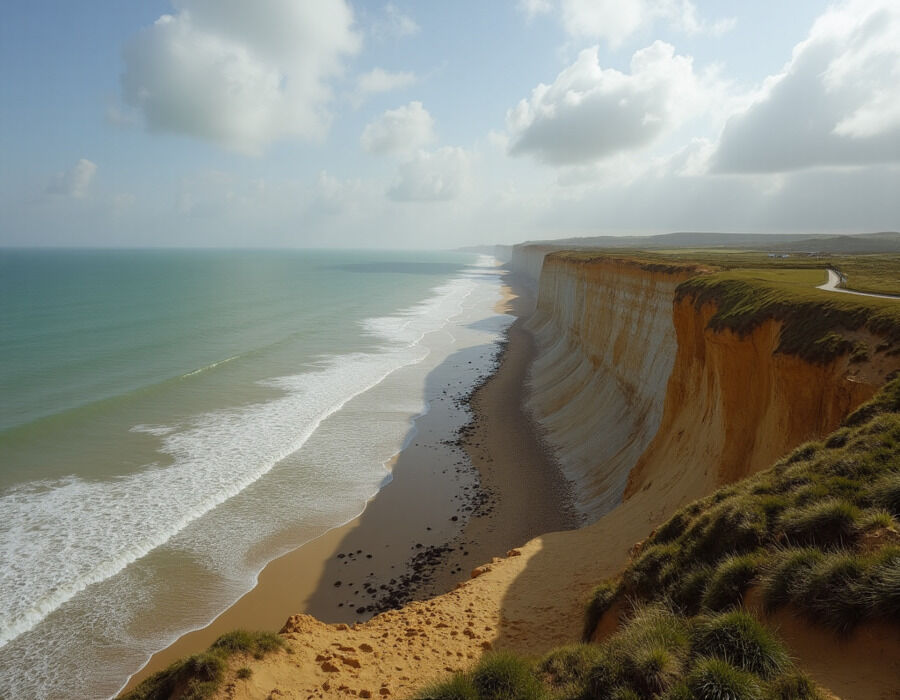≡-Now, Wales Set to Introduce New Tourist Tax in 2027: All You Need To Know About the Revenue to Support Welsh Language and Local Infrastructure – Viral of Today
<> Viral of Today <>
Home » Latest Travel News of UK » Now, Wales Set to Introduce New Tourist Tax in 2027: All You Need To Know About the Revenue to Support Welsh Language and Local Infrastructure Saturday, July 12, 2025In the year 2027, Wales will become one of the UK destinations to implement a tourist tax, which will be directed towards core work like upgrading local facilities and promotion of the Welsh language. The new levy on tourists will imply that tourists pay £1.30 (€1.50) per night on their lodgings. However, those who stay within campsites or hostels will pay only £0.75 (€0.90). Though this levy will not apply to the entire Wales, local councils will have the discretion to decide whether or not to implement the levy within their locality.The levy has long been rumored—a 2018 proposal—and finally, since the Welsh Parliament has officially agreed on it, its introduction will take place in 2027. The legislation will finally bring much-needed funds to help the country’s tourism infrastructure and mitigate the loss of the Welsh language.Why Introduce a Tourist Tax?So why a tourist tax on Wales? The Welsh Government clarifies that the funds will go towards upgrading basic infrastructure, which will yield dividends to residents and tourists, such as upgrading public toilets, fixing footpaths, upgrading beach facilities, and supporting visitor centers.There’s an even specific reason behind the fee, however: the revival of the Welsh language. Welsh-speaking residents have been going downhill for years, and from 2024 reports, just 27.8% of residents aged 3 and older could speak the language, 1.4 percentage points fewer than the year before. The Welsh Government has put a priority on the revitalization of the Welsh language through the plan Cymraeg 2050, which aims to have 1 million Welsh speakers by 2050. The tourist tax should yield an estimated £33 million (€38 million) annually, much of which will fund Welsh-speaking programs.This may include language classes, changes to education, and promoting the profile of the language among Welsh-speaking communities that rely on tourism as a key part of their local economy.The Bigger Picture: How Other UK Cities Are Adopting Tourist TaxesWales is not the only place within the UK where there are proposals to impose tourist taxes. As a matter of fact, the tourist levy concept continues to gain favor across the country since cities are finding ways to finance local initiatives from the proceeds of tourism.In Edinburgh, for instance, the council hasalready signed off on proposals to implement a tourist tax from 2026. The levy in Edinburgh will amount to 5% onaccommodation costs and will yield up to £50 million (€59 million) annually to fund infrastructure improvements andvisitors’ facilities.Back in Britain, things are a bit more complex. As the situation currently stands, local governments are not yet able to make and implement tourist taxes without permission from the central government. Certain cities, however, have found innovative means to draw from tourism revenues, such as Business Improvement Districts (BIDs). BIDs refer to clusters of local businesses that voluntarily get together to share funds to enhance selected areas. Manchester and Liverpool have already established tourism-minded BIDs, whereby special levies are put on businesses that directly receive benefits from tourism, such as lodging and hotel businesses.Moreover, Bournemouth, Poole, and Christchurch are testing a £2 (€2.30) nightly tourist levy, though this has faced backlash from the hotel industry, putting the proposal on hold momentarily. However, local authorities assert that 60 other UK cities are exploring such an agreement using the BID system.What Will the Welsh Tourist Tax Pay For?The intentions of the Welsh Government to spend the proceeds from the tourist fee reach further than simply investing in infrastructure development. Some funds will also go towards supporting and promoting the Welsh language. As the number of Welsh speakers continues to decline, not least from those regions which have benefited from tourism, the tourist tax is an important revenue stream to enhance learning the language and supporting the preservation of Welsh culture.The tourism tax could have a significant part to play in supporting the visibility and vitality of the Welsh language, particularly within those areas where tourism features highly and the use of the language features centrally within local identity. The funds raised from this will go towards funding language lessons, Welsh-speaking schools, and community work supporting the use of the language among youth.Also, since tourism features prominently in local economies within particular parts of Wales, the government hopes that the tax will help diversify local economies and create sustainably functional approaches to tourism that benefit tourists and locals equally.Conclusion: Wales Blazes the Trail to Sustainable UK TourismWales is leading the charge on planned tourist tax throughout the rest of the UK, and its aim is to achieve local sustainability and tourism growth. While the visitor fee will boost local infrastructure and maintain the resurgence of the Welsh language, it too addresses growing demands to make tourism more sustainable and rewarding to tourists and local residents alike. As other cities like Liverpool, Manchester, and Edinburgh are weighing such tourist levies or charges, one thing that stands out clearly is that this measure is part of an overarching initiative to make tourism more responsible and not such a burden on local communities. For Wales, this new charge constitutes a significant milestone to achieving the 1 million Welsh speakers by 2050 objective while ensuring the long-term sustainability of local communities that rely on tourism.Tags: accommodation levy Wales, cardiff, edinburgh, tourist tax Wales, UK, UK tourist tax, UK tourist tax comparison, United Kingdom, wales, Wales tourist tax 2027, Welsh language funding, Welsh language revitalization
This information will surprise you!
See also
- Read until the end to discover everything.
- Important information you need to know.
- Interesting facts and helpful tips.
Conclusion
Did you enjoy the news? Keep following us daily!













